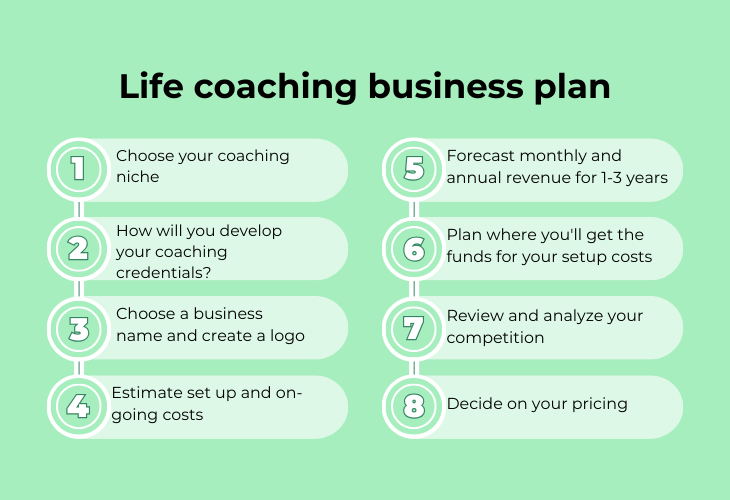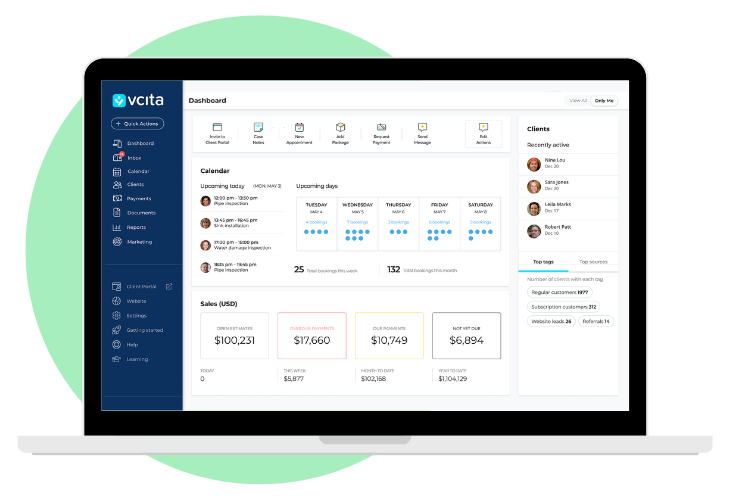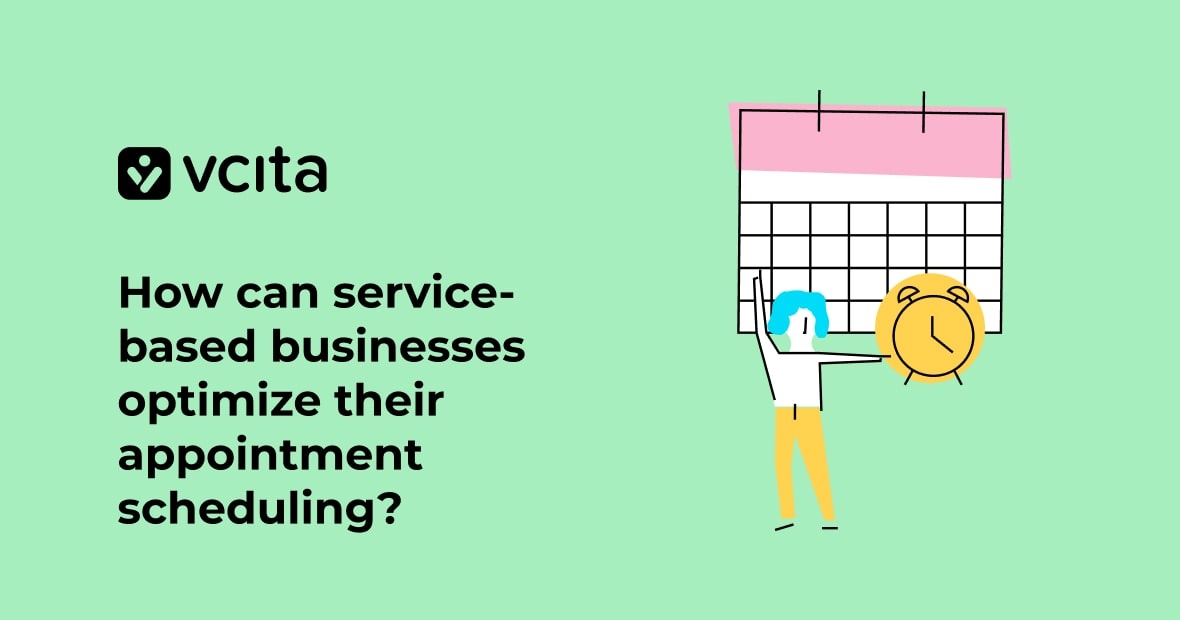It’s great that you want to start a life coaching business and help others achieve their goals and dreams. But before you dive into working with clients, there are some important things you need to consider, like your business structure and how you’ll market your new company.
Starting a life coaching practice takes time, dedication, and the right mindset. If you want to start a life coaching business, here’s what you need to know to set up a life coaching practice, develop your coaching packages, build your business, and start working with clients.
Structuring your life coaching business: LLC or sole proprietorship?
To get your new life coaching business up and running, you’ll need to decide on a business structure. The two most common options for life coaches are sole proprietorships and limited liability companies (LLCs).
Sole proprietorship
As a sole proprietor, you’ll keep things simple. You won’t have to create a separate legal entity for your business. However, your personal assets aren’t protected if your business is sued. You’ll also have to pay self-employment taxes on all your business income.
LLC
With an LLC, you’ll establish a separate legal entity to provide your life coaching services. This shields your personal assets from lawsuits and creditors. LLCs are also taxed similarly to sole proprietorships. Many life coaches find the protection and legitimacy of an LLC worth the additional costs.
No matter which you choose, you’ll have to pay taxes like any other business. Coaches can deduct business expenses like coaching programs, transportation, and office space to reduce tax liability, so keep track of all your outgoings.
Laying the groundwork: choosing your coaching niche and creating a business plan

No matter which business structure you choose, you’ll need a solid life coaching business plan. This should outline your coaching credentials, coaching niche, coaching program, and coaching packages. It will also help you create a budget, set goals, and determine how to reach new clients through social media platforms and your website.
Here are some steps to take to write an effective business plan:
- Choose your coaching niche, like mindset coaching, health coaching or business coaching. Select one that aligns with your experience, skills, and passion.
- Explain how you’ll develop your expertise and coaching credentials
- Choose your business name and create a professional logo.
- Estimate your setup costs and ongoing costs
- Forecast your expected monthly and annual revenue for the next 1-3 years
- Plan where you’ll get the funds for your setup costs
- Review your competition by checking out which other life coaches operate in your area
- Decide on your pricing. You should establish rates for your life coaching services based on your experience and credentials.
At this point, you should also:
- Open business banking accounts to keep your personal and business finances separate
- Set up a bookkeeping system to track income and expenses
- Make sure you understand your tax obligations so you can properly pay taxes
Developing your coaching skills and credentials
To start a successful life coaching business, you need to develop key skills and credentials. It’s a good idea to take a life coach training course to build your expertise. Many programs offer certifications in life coaching, health coaching, business coaching, and more. Look for accredited programs that cover coaching fundamentals, ethics, and niche-specific topics.
Earning coaching credentials also demonstrates your commitment to excellence. The two top credentials are the PCC (Professional Certified Coach) and ACC (Associate Certified Coach) from the International Coach Federation. You’ll need to complete life coach training sessions, log coaching hours, and pass an exam.
Creating Coaching Packages
Decide how you’ll offer your life coaching services. You could do single sessions, multi-month programs, group programs, or retreats. Many coaches offer a free initial consultation. The life coaching packages you offer should clearly list the number of sessions, length of program, cost, and what clients will get.
For example, you could offer a multi-session program that includes six months of weekly 60-minute calls and email support, as well as assessments, resources, and accountability. Or a one-off retreat that’s a two-day intensive experience for up to six people, including meals, workbooks, and follow-up coaching.
Price your services based on your credentials, experience, niche, and ideal clients. Typical pricing can be anything from $75 an hour up to $200 an hour, or even more if you’re working on a retainer for a large enterprise.
Expect to start with lower prices and gradually raise them as you gain experience and word spreads about your excellence. You can also offer payment plans and discounts to make coaching more accessible to more clients.
Marketing your life coaching business on social media
To build a successful life coaching business, you need to market your services. One of the most effective ways for new coaches to reach potential clients is through social media platforms. Before you start, you’ll need a professional website that has all the details about your coaching services, packages, and pricing, so that you can direct potential clients there to find out more.
As a life coach, LinkedIn is ideal for networking and connecting with other professionals in the coaching industry. Build a strong profile highlighting your coaching credentials and experience. Join relevant LinkedIn groups to engage with others, share useful content, and promote your life coaching services. You can also run ads on LinkedIn to increase visibility for your coaching program.
When working with clients, be sure to ask for LinkedIn recommendations to help establish your credibility. Recommendations from past clients on your profile allow potential new clients to see the impact of your coaching.
Create a Facebook page to promote your life coaching business. Post updates, link to your latest blog posts, and start conversations around your coaching niche. It’s a good idea to also start a Facebook group, where you can give quick advice for free to build a relationship with potential clients.
Build your credibility by sharing your coaching philosophy, credentials, training, and client success stories, and engage with your followers by replying to their comments and messages. You can also run ads on Facebook to boost traffic to your page.
Instagram is ideal for life coaches. Post photos that reflect your brand and capture your coaching experience, and share inspiring quotes, snapshots of recent speaking engagements or coaching sessions, and behind-the-scenes previews of what you’re working on.
Like with other social media channels, it’s important to engage with others in your niche by liking and commenting on their posts. Instagram ads and influencer collaborations are also great ways to increase visibility.
Using social media to market your life coaching business allows you to raise awareness, nurture relationships, and find new clients. Choose platforms that you enjoy and that resonate most with your target audience, and be active and consistent to build authority in your niche.
Managing your life coaching practice

Once you’ve set up your life coaching business and begun attracting new clients, you need to make sure that you can manage your daily business operations efficiently. An all-in-one business management solution like vcita has the tools to make it easy to schedule appointments, prepare and send invoices, and keep on top of every client’s needs and preferences.
Always focus on delivering excellent customer experience. Offer a free introductory call so potential clients can get to know you and your coaching style, and you can assess their needs and goals. Then, schedule coaching sessions, provide accountability, and give them homework and exercises to do between sessions to help them progress.
It’s important to ask for feedback and listen for what the client wants to achieve, so you can develop a customized coaching program to support them. Review how sessions are going and make adjustments as needed.
Running a successful coaching business requires ongoing work and dedication. Continue learning and improving your skills, and find the tools to help you run your business more efficiently.
Start your new life coaching business today
So there you have it – the key steps to starting your own life coaching business. With the right skills, credentials, and services, you’ll be well on your way to starting a successful life coaching business. Keep learning, refining your craft, and working with clients to gain valuable experience,and stay up to date with trends in the coaching industry so you can better serve your clients and grow your business.




























